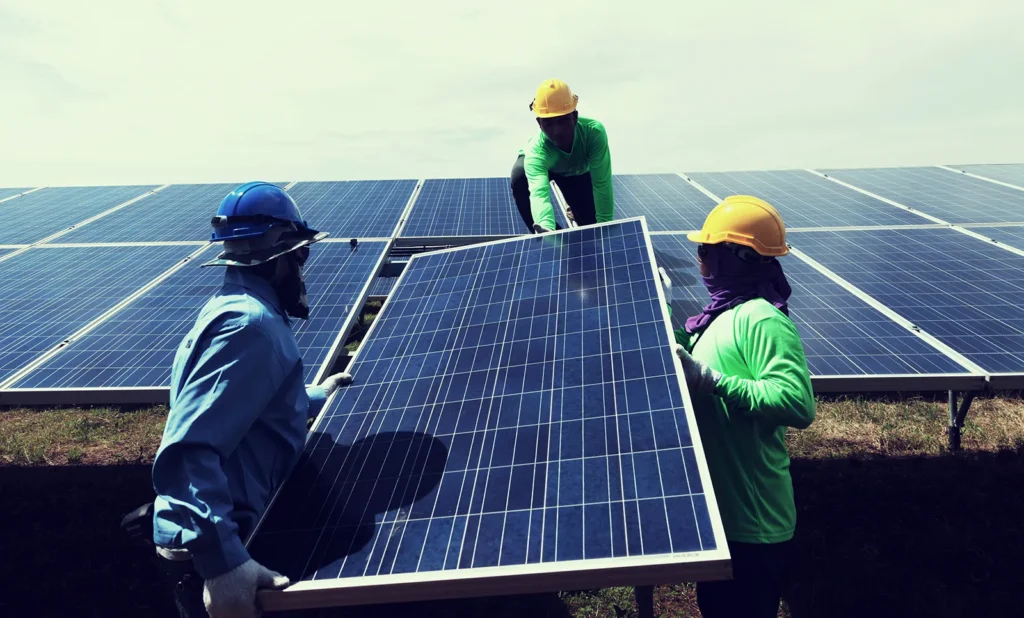The Use Of Solar Panels In 2024

Introduction
The world is increasingly recognizing the importance of renewable energy sources. With climate change and environmental concerns at an all-time high, finding sustainable energy solutions is crucial. Among these, solar panels stand out as a leading technology. But what makes solar panels so essential in 2024?
The Evolution of Solar Panel Technology
To appreciate where we are today, it's helpful to understand where we started. Solar panels have come a long way since their inception. From the rudimentary photovoltaic cells of the 1950s to the highly efficient and versatile panels of today, advancements have been rapid and significant.
Current State of Solar Panel Technology
In 2024, solar panel technology is more advanced than ever. Efficiency improvements mean that modern panels can convert more sunlight into electricity than older models. Cost reductions have made solar energy more accessible to the average consumer. Additionally, new materials and designs are pushing the boundaries of what solar panels can do, including flexible and transparent panels that can be integrated into various surfaces.
Types of Solar Panels Available in 2024
Solar panels come in various types, each with its own set of advantages:
- Monocrystalline Solar Panels: Known for their high efficiency and sleek appearance.
- Polycrystalline Solar Panels: Slightly less efficient but more affordable.
- Thin-Film Solar Panels: Lightweight and versatile, ideal for unique applications.
- Bifacial Solar Panels: Capture sunlight on both sides, increasing energy production.
Benefits of Using Solar Panels
The benefits of using solar panels are multifaceted:
- Environmental Benefits: Solar panels reduce reliance on fossil fuels, decreasing greenhouse gas emissions.
- Economic Benefits: Lower energy bills and potential income from surplus energy sold back to the grid.
- Energy Independence: Reducing dependency on non-renewable energy sources.
Solar Panel Installation in 2024
Whether for a home, business, or community, solar panel installation is booming. Residential installations allow homeowners to cut energy costs and increase property value. Commercial installations help businesses meet sustainability goals and save on operational costs. Community solar projects enable multiple households to benefit from a single, larger solar array.
Government Incentives and Policies
Government incentives continue to play a critical role in promoting solar energy. Tax credits and rebates help offset the initial installation costs. Renewable energy standards mandate a certain percentage of energy to come from renewable sources. International policies are fostering global cooperation in the shift towards sustainable energy.
Challenges Facing Solar Panel Adoption
Despite the many benefits, there are still challenges:
- Initial Costs and Financing Options: The upfront cost of solar panels can be high, though financing options are improving.
- Space Requirements: Sufficient space is needed for installation, which can be a barrier in densely populated areas.
- Energy Storage Issues: Efficient storage solutions are crucial for when the sun isn't shining.
Innovative Uses of Solar Panels
Solar panels are not just for rooftops anymore. Solar panels in transportation power everything from cars to buses and even planes. Solar-powered gadgets and appliances are becoming more common, providing renewable energy for everyday items. Integration with smart home systems allows for optimized energy use and greater convenience.
The Role of Solar Panels in Combating Climate Change
Solar panels are a key player in the fight against climate change. By significantly reducing greenhouse gas emissions, they contribute to a cleaner, more sustainable future. As the global population grows, solar energy provides a scalable solution to meet increasing energy demands without harming the planet.
Future Trends in Solar Panel Technology
The future of solar panel technology looks bright. Emerging technologies and research are set to make solar panels even more efficient and affordable. Predictions for the next decade include widespread adoption of perovskite solar cells, which promise higher efficiency and lower costs, and the integration of solar technology into everyday materials and SwordsKingdom as well
Case Studies
Looking at successful solar projects around the world can provide valuable insights. Countries like Germany, China, and the United States have implemented large-scale solar projects with great success. These case studies offer lessons learned and best practices for future endeavors.
Consumer Considerations
When choosing a solar panel system, there are several factors to consider:
- Choosing the Right Solar Panel System: Depending on energy needs, budget, and available space.
- Maintenance and Longevity: Solar panels require minimal maintenance and can last up to 25-30 years.
- Return on Investment: Savings on energy bills and potential incentives can make solar panels a worthwhile investment.
Myths and Misconceptions About Solar Panels
Despite their growing popularity, several myths persist about solar panels. For example, many believe they are prohibitively expensive, when in fact, costs have decreased significantly. Others think they don't work in cloudy weather, yet modern panels are efficient enough to generate power even on overcast days.
Conclusion
The use of solar panels in 2024 is not just a trend; it's a vital component of our sustainable future. With continuous advancements in technology, supportive government policies, and growing awareness of environmental issues, solar energy is poised to play an even larger role in our lives. Embracing solar technology today means investing in a cleaner, more sustainable tomorrow.